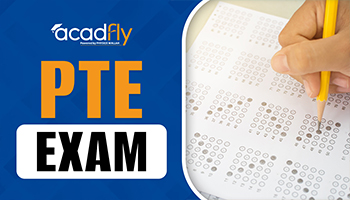

For many international students and professionals, getting a great score on the IELTS exam is important. One of the most effective methods to improve your performance is through feedback. In this guide, we explore how you can use feedback to enhance your IELTS score by presenting a complete blueprint of advice supported by practical ideas and plans interactive with the amiable band level.
The Importance of Feedback
Feedback is not only a polite version of pushing someone to grow and improve. Practice makes perfect — and feedback is the mirror you need to look at yourself during preparation for IELTS. It shows you where your strong and weak areas are. This way, you can better prepare for the exam and get a good score on the IELTS.
Why Feedback Matters:
-
Personal Information: Feedback provides personalized insight into which of your weaknesses to improve.
-
Progress Tracking: Regular feedback helps track your progress over time, showing how your skills are developing and where more effort is needed.
-
Confidence Boost: Successful feedback can also make you more confident. Seeing things get better and falling into place is certainly a morale booster.
Types of Feedback for IELTS
1. Instructor Feedback
Your teacher is invaluable here if you're taking an IELTS preparation course. They enable you to get accurate evaluations of your written pieces and verbal expressions, plus more obvious indications of Listening or Reading skills. Personalized feedback with IELTS exam style & scoring ability to target specific areas of improvement.
What to Look For:
-
Writing: (Comments on task response, coherence and cohesion, grammar, vocabulary usage)
-
Speaking: Fluency and Pronunciation | Lexical Resource and Grammatical Range
-
Listening: Realizations of areas where you did not get questions or misinterpreted words in audio clips
-
Reading: Observations of your ability to find information and make sense of a passage.
2. Practice Test Feedback
When you practice for your exams, make sure that a lot of them are through tests. This helps not only in knowing your strengths and the knowledge of where you lack subject-wise, but this test feedback also tells how good you are at tackling exam pressure or time management.
Key Areas of Focus:
-
Timing: Did you complete the portions in time?
-
Correct/Avoided Questions: The amount of right and wrong responses in all sections
-
Strategy: How good an examinee are you?
-
Peer Feedback
A fresh outlook can be found while studying with friends. They will notice things that you miss and provide actionable advice from their experiences.
Benefits of Peer Feedback:
-
Different Perspectives: Insights from different backgrounds and study methods.
-
Motivation: Encouragement and support from fellow test-takers.
Inspiration to not give up, support from other people who are taking the test.
3. Self-Assessment
Self-evaluation helps you learn and grow. You can catch mistakes and see where you could improve upon your work.
How to Self-Assess:
-
Record and Check: Record your speaking practice so that you can check where it went wrong.
-
Analyze Answers on Review: After giving a practice test, you should analyze the answers to see where mistakes happen.
How to Use Feedback Effectively for IELTS Scoring
Analyze Your Feedback
Begin by reviewing the comments you received in detail. Actionable information: For instance, if your feedback is that you lack coherence in writing, then go through and mark out areas where it needs to be improved.
Actionable Steps:
Favorite Comments: Target common comments or low-scoring areas
Learn from Your Mistakes: Know what type of errors you tend to make (syntactic, lexical, or strategic).
Find Patterns and Common Errors
Focus on what the feedback is saying repeatedly. As for consistent errors, if you always make a similar type of mistake: using the wrong tenses or finding some specific types of questions difficult, then that is exactly what these patterns are.
How to Identify Patterns:
-
Check More Than One Place: Double up with information from multiple tests or instructors.
-
Maintain a Checklist: Note the mistakes you are repeating regularly while doing your practice.
Set Specific Goals
Turn constructive criticism into specific, attainable objectives. Instead of an amorphous goal like "get better at writing," she recommends setting concrete goals — for example: "Cut grammatical errors in Task 1 by half within two weeks."
Goal-Setting Tips:
-
Very Specific: Detail precisely what you wish to get better at.
- Measure: Practice: → Check progress (detailed data) against goals.
Make Changes and Practice
Act on the advice and target specific areas for improvement in your study routine. For example, if your feedback indicates that you need to work on the organization of your essay, practice writing essays in a more structured way.
Proper Practice Techniques:
-
Targeted Practice: Target specific items commented on in your feedback.
-
Practice and Repeat (Regular Review): Deploy the right amount of practice, increasing repetitions in small amounts to consolidate results.
-
Find More Help and Resources
If a part of the feedback is hard to understand, find more help and support in that area. Work with a tutor, use online learning platforms, or obtain IELTS preparation materials to address the same needs.
Additional Resources:
-
Study Guides: Full guides along with practice tests for both IELTS Academic and General Training Test Takers.
-
Live Courses via Zoom: Fully interactive courses and assigned practice tests which are proctored online.
-
Tutoring: — One-on-one attention from trained tutors.
How to Increase Your IELTS Band Score
Practice and practice a lot: It is necessary to keep practicing if you want to be good at any game. Include IELTS preparation in your everyday life to get used to the format of the test and question types.
Familiarize Yourself with the Test Format: Get to know what the IELTS test format is and understand what the scoring criteria are. If you know what to expect, then this will ultimately help you succeed on the day of your tests.
Enhance Time Management: Practice under timed conditions, which will improve your time-management skills in the exam.
Formulate Test-Taking Strategies: Understand how to approach each section, including how the Reading Section unfolds and strategies for note-taking in listening.
Improve Your Vocabulary: Work on expanding your lexicon; this will help your speaking or writing scores to improve.
Challenges and Solutions
The First Challenge: Problems with Writing Coherence
Solution: Work on organizing coherent essays. Write in paragraphs and have them link to each other. Go over example essays and look at their format.
The Second Challenge: I Find It Hard to Understand Accents When Listening
Solution: Practice listening to different English accents through podcasts, news broadcasts, and audiobooks. It will not only help you familiarize yourself with varying pronunciations and intonations but also increase your ability to pick them up quickly.
The Third Challenge: Reading Time Management
Solution: Learn skimming and scanning to locate information quickly. Also, plan out exactly how much time you can spend on each passage and question so that you have enough time to complete the section before moving on to other tasks.
The Fourth Challenge: Lack of Speaking Confidence
Solution: Speak and practice every day with a partner or tutor. This is a great way to judge your performance and see what needs improvement. Speaking in English will increase your confidence.
The Fifth Challenge: Taking Feedback
Solution: Ask the instructor or tutor for better clarification on the feedback received. Don't hesitate to supplement your resources or utilize other online means of understanding the feedback.
Conclusion
These tips for using feedback well are game changers to help you increase your IELTS score! Making progress comes from analyzing feedback well, identifying what you or someone is not doing right, and then setting specific goals around that. And practice regularly in small sips of coffee. The best tips for overcoming these problems will make the experience even better. So just keep in mind, that the more serious and focused you are about it, the better your band score on the IELTS exam will be, and with that approach, no one can stand between your dreams and reality.
FAQs:
1. How can I improve my IELTS writing with feedback?
Review particular tips on how to revise your essays, including comments about grammar and vocabulary as well as coherence. You need to use the feedback by practicing writing essays more and focusing on what you have been told, perhaps using some guides as well.
2. How do I get a good score in the speaking section of my IELTS?
Practice speaking regularly with native speakers or using language exchange platforms. Keep the focus on fluency and pronunciation, and add new vocabulary. You can also record yourself speaking and watch it back to see where you may have gone wrong.
3. What are quick and effective ways to raise my IELTS listening score?
Practice listening to English with a diverse range of accents and varied audio materials; listen to English in different contexts through regular mock tests.
4. How do I deal with feedback from my practice tests in the IELTS?
Ask your teacher or tutor for clarification on the feedback received. You can search the internet or refer to good IELTS books that provide explanations of common mistakes and methods to get rid of such blunders. You can then get additional perspectives by joining a study group.
5. What is the best way to make use of suggestions from IELTS practice test feedback?
Analyze your practice test results for trends in the type of questions you struggle with. Create customized goals inspired by the feedback and tailor your daily study sessions around these areas. Take practice exercises and mock tests regularly to check your progress.
Frequently Asked Questions









